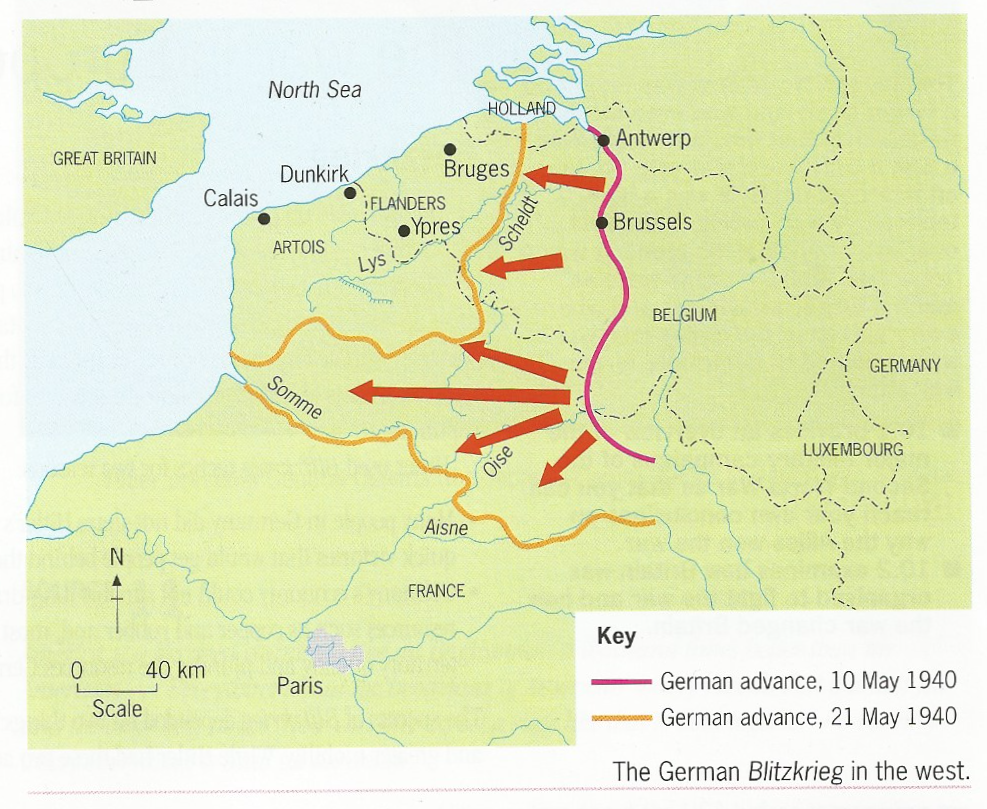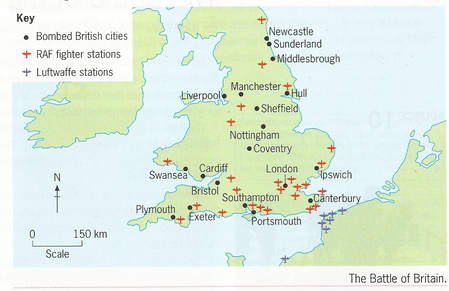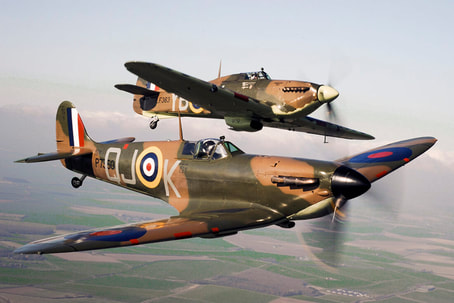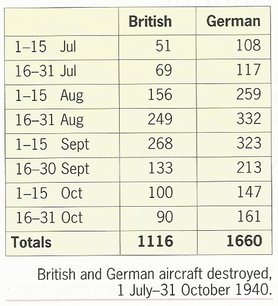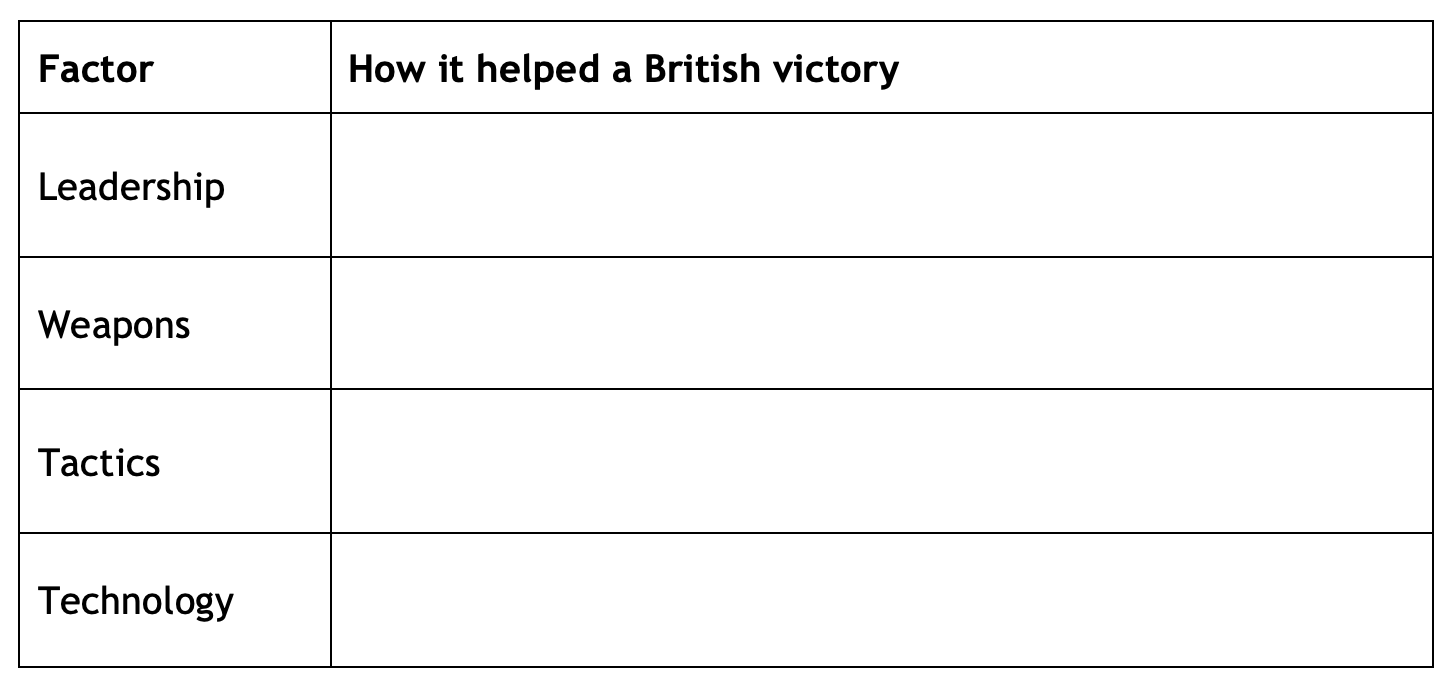Lesson 5 - The War in Europe 1939-40
For this section of the syllabus it is particularly important that you refer to your textbook Chapter 10, The World at War. The Matu syllabus is particularly vague and subject matter potentially endless, it is therefore important that the get a good chronological overview of the war. There are plenty of documentary materials online which can also help. On my website this one hour overview from People's Century is a good place to start, Apocalypse is a Franco-Belgian production which uses colourised archive footage and the 1973 World at War is considered to be one of the greatest documentary series ever made.
Why did Germany do so well in the beginning?
The answers to this question reveal that Hitler learned the lessons of the First World War more creatively than the Allies. France and Britain adopted defensive strategies, relying in France's case on the Maginot Line and in Britain's case on the Channel and a naval blockade of Germany. Hitler, like Schlieffen, knew the dangers of a two-front war for Germany and avoided it much more successfully than the High Command in 1914. The conquest of Poland in September 1939 was carried out without the intervention of France or Britain. The Nazi-Soviet Pact kept Russia from interfering in the astounding conquest of western Europe in May-June 1940. The German invasion of the USSR in June 1941 admittedly left an undefeated Britain in the West, but Britain was not, at that time, able to inflict much damage on Germany. Hitler did not have to face a two-front war until D-Day (June 1944), unless we count the Allied invasion of Sicily which took place in July 1943.
German forces in western Europe in May 1940 were roughly equal in size to those of the Allies. French tanks were supposedly better than Hitler's, but Hitler had more airplanes. The crucial difference was that Hitler used airplanes, tanks (fitted with radio, unlike the French ones) and motorised infantry in rapid, coordinated thrusts: the technique called blitzkrieg, or lightning war
What were the consequences of Germany’s early successes?
German forces defeated Poland within weeks. The Blitzkrieg tactics overwhelmed the Polish Army. The Soviet Union subsequently invaded the Eastern half of Poland as agreed in a secret deal with Germany. Poland’s geographical isolation from Britain and France meant that there was no practical assistance to be offered. Having secured his Eastern flank, Hitler’s attention turned to Western Europe.
Why did Germany do so well in the beginning?
The answers to this question reveal that Hitler learned the lessons of the First World War more creatively than the Allies. France and Britain adopted defensive strategies, relying in France's case on the Maginot Line and in Britain's case on the Channel and a naval blockade of Germany. Hitler, like Schlieffen, knew the dangers of a two-front war for Germany and avoided it much more successfully than the High Command in 1914. The conquest of Poland in September 1939 was carried out without the intervention of France or Britain. The Nazi-Soviet Pact kept Russia from interfering in the astounding conquest of western Europe in May-June 1940. The German invasion of the USSR in June 1941 admittedly left an undefeated Britain in the West, but Britain was not, at that time, able to inflict much damage on Germany. Hitler did not have to face a two-front war until D-Day (June 1944), unless we count the Allied invasion of Sicily which took place in July 1943.
German forces in western Europe in May 1940 were roughly equal in size to those of the Allies. French tanks were supposedly better than Hitler's, but Hitler had more airplanes. The crucial difference was that Hitler used airplanes, tanks (fitted with radio, unlike the French ones) and motorised infantry in rapid, coordinated thrusts: the technique called blitzkrieg, or lightning war
What were the consequences of Germany’s early successes?
German forces defeated Poland within weeks. The Blitzkrieg tactics overwhelmed the Polish Army. The Soviet Union subsequently invaded the Eastern half of Poland as agreed in a secret deal with Germany. Poland’s geographical isolation from Britain and France meant that there was no practical assistance to be offered. Having secured his Eastern flank, Hitler’s attention turned to Western Europe.
|
In May 1940, German troops attacked the Netherlands, Belgium and France. The British Army was forced to abandon the Continent. As the German advance briefly paused, over 300,000 British and French troops were rescued from the beaches in Operation Dynamo at Dunkirk and taken to Britain to fight another day. As German troops closed in on Paris, the British and French governments discussed the idea of uniting their nations in a Franco-British Union to sustain ‘France’ even through military defeat. This embryonic proposal of European union came to nothing and the French Government collapsed soon after. General de Gaulle escaped to London and assumed leadership of the ‘Free French’; those who had escaped and those who were determined to continue the struggle from France’s overseas territories. Marshal Petain stayed in France as head of a Nazi controlled puppet state which as throughout all Nazi occupied territories was to be economically exploited for the German war effort and from which the Jewish population would be transported to concentration camps.
|
Activity 1 - Was Churchill right to fight on after Dunkirk? The historical problem of 2020 vision.
'Dunkirk has been a miracle of deliverance, achieved by valour, by perseverance, by perfect discipline, and resourced by skill and unconquerable fidelity.' Winston Churchill, 4 June 1940.
In Britain during any time of national crisis you are likely to hear references to the 'Dunkirk Spirit'. In the last couple of years with Brexit and now with Covid-19, popular nationalism in Britain has routinely called upon this example of British exceptionalism. According to the dictionary, 'Dunkirk spirit' means 'stoicism and determination in a difficult or dangerous situation, especially as displayed by a group of people.
for example: "Yorkshire flood victims showed the Dunkirk spirit as they battled the rising water"'.
But what was the reality of Dunkirk? Even Churchill himself said in June 1940 that 'we must be very careful not to assign to this deliverance the attributes of a victory. Wars are not won by evacuations...' Of course, Dunkirk was a military defeat, turned into a propaganda triumph, but more than this, the British decision to fight on was not inevitable. When Churchill said in one of his most famous speeches (below) 'we shall never surrender', it was only after closely argued decisions had been reached elsewhere. There were many people at the time, some of whom were very influential, who thought the decision to fight on was mistaken. There are still some who continue to argue today, that Britain (and the World) would have better off surrendering in 1940 before the war had really got started.
In Britain during any time of national crisis you are likely to hear references to the 'Dunkirk Spirit'. In the last couple of years with Brexit and now with Covid-19, popular nationalism in Britain has routinely called upon this example of British exceptionalism. According to the dictionary, 'Dunkirk spirit' means 'stoicism and determination in a difficult or dangerous situation, especially as displayed by a group of people.
for example: "Yorkshire flood victims showed the Dunkirk spirit as they battled the rising water"'.
But what was the reality of Dunkirk? Even Churchill himself said in June 1940 that 'we must be very careful not to assign to this deliverance the attributes of a victory. Wars are not won by evacuations...' Of course, Dunkirk was a military defeat, turned into a propaganda triumph, but more than this, the British decision to fight on was not inevitable. When Churchill said in one of his most famous speeches (below) 'we shall never surrender', it was only after closely argued decisions had been reached elsewhere. There were many people at the time, some of whom were very influential, who thought the decision to fight on was mistaken. There are still some who continue to argue today, that Britain (and the World) would have better off surrendering in 1940 before the war had really got started.
Begin by watching this series of four short film extracts.
|
Film 1 - Pathe newsreel shown in UK cinemas in June 1940
|
Film 2 - Mrs. Miniver 1942 feature film includes a Dunkirk subplot
|
|
Film 3 - Dunkirk scene from 2007 Atonement (Dir. Joe Wright)
|
Film 4 - Gary Oldman as Winston Churchill in 2017 (Dir. Joe Wright)
|
Discussion questions
1. Are films 1 and 2 propaganda films? Explain your answer careful with reference to the content of both films.
2. How does film 3, Atonement, deliberately challenge the myth of Dunkirk?
3. Is the extract from the 'Darkest Hour' useful? or is it just entertainment? Again explain your answer. See Wikipedia
4. Advising Churchill - The details of this activity are in Walsh 281. Watch Andrew Marr's documentary below: 1940 - Dunkirk and Churchill's decision.
1. Are films 1 and 2 propaganda films? Explain your answer careful with reference to the content of both films.
2. How does film 3, Atonement, deliberately challenge the myth of Dunkirk?
3. Is the extract from the 'Darkest Hour' useful? or is it just entertainment? Again explain your answer. See Wikipedia
4. Advising Churchill - The details of this activity are in Walsh 281. Watch Andrew Marr's documentary below: 1940 - Dunkirk and Churchill's decision.
|
|
It is June 1940. You were in France and saw the defeat of the BEF and now you have news of the surrender of France. What would you advise the Prime Minister, Winston Churchill, to do now? The choices are: surrender, fight on or reach some kind of agreement or alliance with Hitler. Present the arguments for and against each option. You will need to think about: the power of the German army, the state of the British army, the resources available to Hitler from the territories he has conquered.
Now say which option you recommend. Remember you are trying to think about this from the 1940 point of view, not that of 2020. |
The Battle of Britain and the Battle of the Atlantic
After Dunkirk, Hitler made preparations for Operation Sealion; the German plan to invade Britain. To succeed, Germany would first have to achieve air superiority by destroying the fighter planes of the Royal Air Force. The Battle of Britain was to be a decisive defeat for Hitler, the first of the War. Throughout August and September, 1940, the two air forces fought each other over Southern England until German losses became unsustainable and the invasion of Britain was postponed. This victory was, in Churchill’s phrase, Britain’s “finest hour”, achieved by pilots from Britain, the British Empire, Poland, Czechoslovakia, France and other Allied nations. The strategic implications of victory were crucial as Britain’s survival provided the Allies with an impregnable base beyond the reach of Germany’s superior land forces. From this base the Allies could develop their air power to eventually achieve air supremacy in Western Europe. The victory also provided hope for the people of occupied Europe and bought time to develop the Alliance that would defeat Hitler.
Why did Britain win the Battle of Britain?
Why did Britain initially lose but ultimately win the Battle of the Atlantic?
|
|
The Battle of the Atlantic was the longest of the war. As we saw with the First World War, the maintenance of shipping between Europe and the Americas was critical to the survival of Britain. Initially, Germany seemed to have the advantage and the U-boats looked capable of knocking Britain out of the war. But eventually, between 1942 and 1943 the Allies seemed to be gaining the advantage.
Activity 3 Using your textbook pages 284-5 identify three important reasons why Germany was initially successful in the Battle of Atlantic and three reasons why Britain and her allies ultimately won. |

